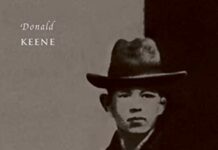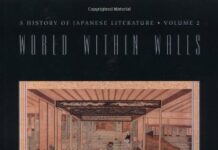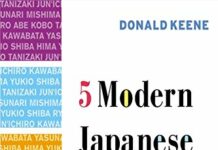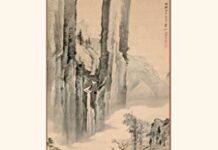
Ebook Info
- Published: 2009
- Number of pages: 196 pages
- Format: PDF
- File Size: 6.62 MB
- Authors: Donald Keene
Description
“I sometimes think that if, as the result of an accident, I were to lose my knowledge of Japanese, there would not be much left for me. Japanese, which at first had no connection with my ancestors, my literary tastes, or my awareness of myself as a person, has become the central element of my life.”In this eloquent and wholly absorbing memoir, the renowned scholar Donald Keene shares more than half a century of his extraordinary adventures as a student of Japan. Keene begins with an account of his bittersweet childhood in New York; then he describes his initial encounters with Asia and Europe and the way in which World War II complicated that experience. He captures the sights, scents, and sounds of Japan as they first enveloped him, and talks of the unique travels and well-known intellectuals who later shaped the contours of his academic career.Keene traces the movement of his passions with delicacy and subtlety, deftly weaving his love for Japan into a larger narrative about identity and home and the circumstances that led a Westerner to find solace in a country on the opposite side of the world. Chronicles of My Life is not only a fascinating tale of two cultures colliding, but also a thrilling account of the emotions and experiences that connect us all, regardless of our individual origins.
User’s Reviews
Editorial Reviews: Review Lovingly illustrated by the artist Akira Yamaguchi, the book limns a life inseparably linked to its dominant passion…. The history is fascinating, and the literary life Keene has doggedly carved out of it, remarkable. — Andrew Monahan ― TIME, Asia EditionKeene’s book soars, largely because of his intriguing, highly personal account of the literary milieu of Japan, particularly its drama, whether on stage or screen…. [An] engaging and eloquent memoir. — Robert Elegant ― Times Literary SupplementGratifying… picaresque…. The pathos at the heart of Keene’s lovely and gracious memoir, and perhaps of his extraordinary life, emanates from this very human limitation: we cannot live in and love two worlds at once. — Roland Kelts ― BookforumFew memoirs have the concision, modesty, and charm that mark this late-life work by Donald Keene, America’s most renowned scholar and interpreter of Japan. ― Foreword[Keene] shares and teaches, speaking in vignettes by turns wistful, forceful, and lyrical…. This slim volume [is] a pleasure to read. — Erik R. Lofgren ― World Literature Today About the Author Donald Keene is Shincho Professor of Japanese Literature and University Professor Emeritus at Columbia University. He is the author of more than thirty books, including Frog in the Well: Portraits of Japan by Watanabe Kazan, 1793-1841; Emperor of Japan: Meiji and His World; and Yoshimasa and the Silver Pavilion: The Creation of the Soul of Japan; as well as the definitive multivolume history of Japanese literature.
Reviews from Amazon users which were colected at the time this book was published on the website:
⭐This is a “polite” autobiography by the greatest living Japanologist. This is a very good read. I was quickly pulled in. I found the read cerebral, refreshing, and peaceful. This book is an absolute must read for anyone who considers himself or herself a Japanophile or Japnologiest (I consider myself the latter). One gets to follow his life sequence of events that lead him to be enveloped by Japanese literature and culture. One is exposed to list of who’s-who of Japanese modern literary figures. I love his inclusion of the many Japanese words. I wished he had included the kana and kanji versions as well. The illustrations by Chang Jae Lee are a great touch. I found the typography and whitespace enhance the beauty of the book and its story. Separate from how good the read is I have a few disappointments. I found it very tatemae or “pubic face.” The reader is wrapped or shielding from many unpleasant facts. There is not a word about any person he was every romantically involved with. But this is true to his nature. When given the opportunity to write a biography of Mishima Yokio, he was unable to do it. He didn’t want to pry into the private life of Mishima. He also shields the reader from gaijin. That word does not appear in this book. He mutes the feelings that Japanese have towards foreigners. He does tell use how the Nobel Prize of literature lead to the suicide of two literary giants. But he shields the reader from much of depression found in Japanese society. I feel that he wrote or imagined the book in Japanese and then translated it into English.In contrast of opposites is the book by John Nathan, “Living Carelessly in Tokyo and Elsewhere”. You know John raw feelings, frustrations, overwhelming depression, and passionate loves. You know what from his experience to be constantly be reminded that you are gaijin and frequently depressed. My concluding analysis is Keene-sensei is one of the few westerners to “become Japanese’s” and is a citizen there. Dr Nathan is in American and was able to “do” Japanese for only limited number of years.
⭐First a disclaimer: I know nothing about Japanese literature, and I read Keene’s autobiography only because I am fascinated with people who are gifted at mastering other languages, especially difficult ones. (Even some Japanese express surprise that Keene is fluent in their language.)Keene is a lucid writer who chronicles his life with grace and modesty. As is typical with academic autobiographies, the general reader will probably find Keene’s early career more interesting than his latter years when he was showered with honors for his multi-volume history of Japanese literature. For one thing, childhoods are more similar than adulthoods. My own concentration flagged as Keene detailed his connections with noted Japanese writers who were all (except for the notorious Mishima) unknown to me.Apparently Keene’s life is strictly that of a scholar who loves Western classical music, especially opera. Keene mentions no love affairs of any sort, and his political views are charmingly naïve. (His strongest quasi-political statement is the declaration, “Down with the car!”) Of religion there is not a hint. In short, he has eschewed discussion of any larger philosophical questions–his right, of course, but somewhat surprising for man in his late eighties.The book itself is a masterpiece of the bookmaker’s art and includes clever drawings by Japanese artist Akira Yamaguchi (although unfortunately for readers like me–the sort who muddle through French and German–many of the captions are in Japanese). The book concludes with a helpful guide to the Japanese individuals mentioned in the text, but the book has no index.
⭐The story of a fascinating, simply fascinating man! I lived in Japan for 10 years working for a Japanese car company and found some similar experiences. Mr. Keene was a true pioneer in Japanese cultural and language studies. His parents rejected the US citizenship and stayed in Japan at the start of WWII, but Donald Keene and his brother had already been sent to the US to study.The boys were both in the intelligence section of the US Navy, while their father was running a Japanese factory that built war machines for the Japanese military! It is a fascinating tale.
⭐I read this book in two sittings, and found that in a genre often characterized by bloated, self-aggrandizing tales of Me-dom, his was extremely thoughtful and modest and, most importantly, entertaining. I recall a passage where he describes the extent to which his psyche has shifted toward that of the Japanese. It is revealed in the humility with which he tells his story, and by the omissions which anyone would have been forgiven for including (myriad honorary degrees, Japanese government awards, recognition within academic circles). He includes those only which aid the narrative, consistent with his belief that passion for the topic is more important than minutiae.
⭐Donald Keene is justly famed for his translations of Japanese literature. This is a chronicle of a discrete man; if you know something about modern Japanese writers you will be struck by how much Keene leaves out about the turmoil of post-war Japan. Writers are mentioned by name but Keene does not share his opinions of them. Nonetheless I enjoyed his chronicle of his fascination with Japan and his many remarkable people in England, the U.S. and Japan.
⭐This is the second time that I have used such a heading, as I read,in a book on tea, that that is great praise from the Japanese. As others above have noted, Keene’s humility, fairness, and openness are a wonder to behold. And look at the beautiful, almost netsuke-like illustrations by Yamaguchi! All highly appropriate and genuinely helpful to the stories. There is one masterpiece of understated excellence, on page 80, of a bird’s-eye view of the Ponto-choh in Kyoto, with fine detail. Wonderful!
⭐Diese Biographie hat mir nicht nur Einblicke in das Leben von Donald Keene gegeben und wie er sein Herz an Japan verloren hat, sondern hat mir auch eine andere Seite des 2ten Weltkriegs gezeigt. Dinge, die man im Geschichtsunterricht als Deutscher nicht erfährt. Allein dafür hat es sich gelohnt.
⭐Not found.
⭐Excellent!
⭐Pour lecture.
⭐私はドナルド・キーンさんの本が大好きでよく読みます。この本を知ったのは、翻訳コンクールの表彰式で、キーンさんが山崎正和さんとの対話の中で言及されたからです。それでキーンさん自身のことを知りたいと思い、購入して読み始めまた次第です。キーンさんの著作からは、キーンさんの人柄が濃厚に感じられます。優しく慈しみに満ちて、誠実で真摯、謙虚。この自伝は、こういった魅力で隅々まで満たされています。自伝は時間を追って語られていますが、淡々と語られていく中にキーンさんの人柄がくっきりと浮かび上がってきます。まず印象的なのが幼少期のヨーロッパへの旅行です。そして父上との別れ。続いて大学への進学や、英国への留学、日本への留学。語り口はあっさりしていますが、驚くのは、次々と幸運に恵まれ、近代日本文学の錚々たる人々がさりげなく登場することです。それらを読むに付け、思うのは、キーンさんの人徳ということです。キーンさんの人柄と学問の力とが相俟ってキーンさんのすばらしい人生を形作っていることがよく分かります。キーンさんの日本文化論は、目から鱗の発見に満ちていて必読です。それらを読むと我々がいかに日本文化の価値を知らないかということがよく分かります。我々の幸運はこのような人を日本文学と日本文化の紹介者として持ったことでしょう。本書は英語ですが、高校卒業程度の英語力で十分読めます。これもまたキーンさんの人柄と実力によるものでしょう。英語を勉強していてよかったな〜〜と感じさせてくれる一冊です。
⭐Not found.
⭐「日本の心を持った一人のアメリカ人の自伝」です。コロンビア大学で学び、更にケンブリッジ大学で研鑽を積んだ学殖豊かな著者が、謙虚に平易に日本への深い想いを「私の履歴書」として語っていることに深く感動しました。著者の日本の文人、学者との交流の深さ、日本の歴史、文化、文学への通暁は驚異であり、外国人に教えられる反省があります。特に三島由紀夫との交流は特筆すべきものです。ニューヨークッ子である著者は、クラシック音楽が大好きで、マリア・カラスをメトで聴いて感動した話など音楽への傾倒が随所に書かれています。自分の人生は、幸運だった、幸せだった、それも人のご縁に連なる連鎖でできあがったものだ。私の人生は、日本と密接に絡み合っていて、この紐帯が切れることはない。日本は、私の最終的な到着地になるだろう。と2008年発行のこの著書の終盤に書いています。3月11日の東日本大震災で、日本に帰化、永住を決めた89歳の著者。あの穏やかでやさしい著者ドナルド・キーン氏が、単なる情緒的な思いで、日本を終の住処と決めたのではないことに感銘し胸が熱くなりました。世情騒然とした今こそ日本の心を学ぶ絶好の書です。
⭐Not found.
Keywords
Free Download Chronicles of My Life: An American in the Heart of Japan in PDF format
Chronicles of My Life: An American in the Heart of Japan PDF Free Download
Download Chronicles of My Life: An American in the Heart of Japan 2009 PDF Free
Chronicles of My Life: An American in the Heart of Japan 2009 PDF Free Download
Download Chronicles of My Life: An American in the Heart of Japan PDF
Free Download Ebook Chronicles of My Life: An American in the Heart of Japan




